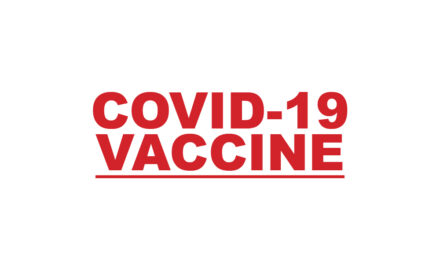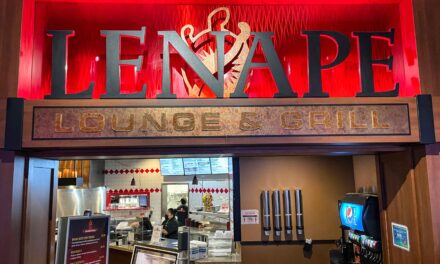
Farm Service Agency
FACT SHEET – FEBRUARY 2021 (download pdf by clicking here)
**Notice: If you have been impacted by the February 2021 Winter Storm and reside in an undeclared county, please report your damages with pictures immediately to www.damage.ok.gov Doing so helps additional counties get added to the Individual Assistance Declaration.**
Overview
The Agriculture Improvement Act of 2018 (the 2018 Farm Bill) authorized the Livestock Indemnity Program (LIP) to provide benefits to eligible livestock owners or contract growers for livestock deaths in excess of normal mortality caused by eligible loss conditions, including eligible adverse weather, eligible disease and attacks by animals reintroduced into the wild by the federal government or protected by federal law, including wolves and avian predators. In addition, LIP provides assistance to eligible livestock owners that must sell livestock at a reduced price because of an injury from an eligible loss condition.
LIP is administered by the U.S. Department of Agriculture (USDA) Farm Service Agency (FSA). The occurrence of an eligible loss condition in and by itself – does not determine eligibility for eligible livestock losses. The livestock owner or contract grower must provide evidence acceptable to FSA that the eligible cause of loss not only occurred but directly caused loss or death.
LIP payments for owners are based on national payment rates that are 75 percent of the market value of the applicable livestock as determined by the USDA’s Secretary of Agriculture. Rates for contract growers of poultry or swine will not exceed the rates for owners but are based on 75 percent of national average input costs for the applicable livestock.
The 2018 Farm Bill amended certain provisions related to LIP effective in 2019. Those amendments included:
- livestock death losses due to extreme cold are considered eligible losses without regard to vaccination protocol, or lack of vaccination; and
- providing for compensation for livestock death losses due to diseases that are caused or transmitted by a vector and are not controlled by vaccination or an acceptable management practice. These diseases were previously covered under ELAP.
Eligible Livestock Owners
To be eligible for LIP:
A livestock owner must have legally owned the livestock on the day the livestock died and/or were injured by an eligible loss condition.
An owner’s livestock must have either :
- died in excess of normal mortality as a direct result of an eligible loss condition,
- or been injured as a direct result of an eligible loss condition and were sold at a reduced price.
Eligible livestock must:
- Have been maintained for commercial use as part of a farming operation on the day they died; and
- Not have been produced or maintained for reasons other than commercial use as part of a farming operation. Excluded livestock includes wild free-roaming animals, pets or animals used for recreational purposes, such as hunting, roping or for show.
Livestock Indemnity Program
The following types of livestock may be eligible for UP:
| CATTLE | POULTRY | SWINE | OTHER |
| Adult Beef Bulls Adult Beef Cows
Adult Buffalo/Bison Bulls Adult Beefalo Bulls |
Non-Adult Dairy Cattle
Chickens, Broilers, Pullets (regular size) (4.26 to 6.25 pounds) Chickens, Chicks Chickens, Layers |
Suckling/Nursery Pigs (less than 50 pounds)
Swine, Lightweight Barrows, Gilts (SO to 150 pounds) |
Alpacas Deer Elk
Emus |
| Adult Beefalo Cows
Adult Buffalo/Bison Cows Adult Dairy Bulls Adult Dairy Cows Non-Adult Beef Cattle |
Chickens, Pullets/Cornish Hens (small size) (Less than 4.26 pounds)
Roasters (6.26 to 7.75 pounds) Super Roasters/Parts (7.76 |
Swine, Sows, Boars,
Barrows, Gilts (151 to 450 pounds) Swine, Sows, Boars (over 450 pounds) |
Equine
Goats, Bucks Goats, Nannies Goats, Slaughter Goats/Kids Llamas |
| Non-Adult Buffalo/Bison Non-Adult Beefalo | pounds or more) | Reindeer | |
| Ducks, Ducklings | Caribou | ||
| Ducks, Ducks | Sheep, Rams | ||
| Geese, Goslings | Sheep, Ewes | ||
| Geese, Goose | Sheep, Lambs | ||
| Turkeys, Poults | |||
| Turkeys, Toms, Fryers, Roasters |
Eligible Livestock Contract Growers (Poultry and Swine)
Poultry and swine are the only kinds of livestock for which contract growers can be eligible under LIP. To be eligible for LIP, in addition to meeting all other eligibili ty requirements for loss, a poultry or swine contract grower must have had the following:
- Possession and control of the eligible livestock; and
- A written agreement with the eligible livestock owner setting the specific terms, conditions and obligations of the parties involved regarding the production of livestock.
Contract growers are not eligible for losses under LIP for injured livestock that were sold at a reduced price due to an eligible loss condition.
Eligible Loss Conditions
An eligible loss condition includes any of the following that occur in the calendar year for which benefits are requested:
- Eligible adverse weather event;
- Eligible disease; and
- Eligible attack .
Eligible adverse weather event means extreme or abnormal damaging weather that is not expected to occur during the loss period for which it occurred, which directly results in eligible livestock losses. An eligible adverse weather event must occur in the calendar year for which benefits are requested. Eligible adverse weather events include, but are not limited to, as determined by the FSA Deputy Administrator of Farm Programs or designee, earthquake; hail; lightning; tornado; tropical storm; typhoon; vog, if directly related to a volcanic eruption; winter storm, if the winter storm lasts for three consecutive days and is accompanied by high winds, freezing rain or sleet, heavy snowfall and extremely cold temperatures; hurricanes; floods; blizzards; wildfires; extreme heat; extreme cold; and straight-line winds. Drought is not an eligible adverse weather event except when associated with anthrax, a condition that occurs because of drought and results in the death of eligible livestock.
Eligible disease means a disease that is exacerbated by an eligible adverse weather event that directly results in eligible livestock losses, including, but not limited to, anthrax, cyanobacteria, (beginning in 2015 calendar year) and larkspur poisoning (beginning in 2015 calendar year). In addition, eligible disease means a disease that is caused and/or transmitted by vectors and vaccination or acceptable management practices are not available, whether or not they were or were not implemented, that directly result in death of eligible livestock in excess of normal mortality, including but not limited to Blue Tongue, EHD and CW.
Eligible attack means an attack by animals reintroduced into the wild by the Federal Government or protected by Federal law, including wolves and avian predators, that directly results in either injured livestock sold at a reduced price or death of eligible livestock, in excess of normal mortality.
Payments
Livestock Death Losses
LIP payments for livestock death losses, adjusted for normal mortality, are calculated by multiplying the national payment rate for the applicable livestock category by the number of eligible livestock in that category times the producer’s share. Current year national payment rates are found at the end of this fact sheet.
The LIP national payment rate for eligible livestock owners is based on 75 percent of the average fair market value of the livestock, as provided in Table 1.
The LIP national payment rate for eligible livestock contract growers is based on 75 percent of the average income loss sustained by the contract grower with respect to the dead livestock, as provided in Table 2.
A contract grower’s LIP payment will be reduced by the amount of monetary compensation received from the owner for the loss of income suffered from the death of livestock under contract.
Injured Livestock
For eligible livestock owners, LIP payments for injured livestock that are sold at a reduced price due to an eligible adverse weather event or eligible attack are calculated by multiplying the national payment rate for the applicable livestock category minus the amount that the livestock owner received for the eligible livestock in that category times the livestock owner’s share. If injured eligible livestock are sold for more than the national payment rate for the applicable livestock category, there is no payment.
Payment Limitations and Adjusted Gross Income (AGI)
For the 2017 and subsequent program years, there is no per person or legal entity program year payment limitation.
In evaluating average adjusted gross income, an individual or entity is ineligible for payment under LIP if the average AGI of the individual or entity exceeds $900,000.
Direct attribution provisions apply to LIP. Under direct attribution, AGI provisions apply to the person or legal entity applying for payment as well as to those persons or legal entities with an interest in the legal entity or in a sub-entity.
For more information on payment limitations, visit
Applying for LIP
Owners or contract growers may apply to receive LIP benefits at local FSA offices.
Owners or contract growers who suffer livestock losses due to an eligible cause of loss must submit a notice
of loss and an application for payment to the local FSA office that serves the physical location county where the livestock losses occurred. All of the owner’s or contract grower’s interest in inventory of eligible livestock in that county for the calendar year must be accounted for and summarized when determining eligibility.
An owner or contract grower must file a notice of loss within 30 calendar days of when the loss of livestock is first apparent as well as file an application for payment within 60 calendar days after the end of the calendar year in which the eligible loss condition occurred.
For 2021 LIP losses, livestock owners and contract growers may apply for 2021 LIP benefits in the physical location county where the loss occurred.
The following table provides the final dates to file a notice of loss and application for payment:
| DATE OF LIVESTOCK INJURY AND/OR DEATH | FINAL DATE TO FILE NOTICE OF LOSS | FINAL DATE TO SUBMIT AN APPLICATION FOR PAYMENT |
| Calendar year 2019 and all sub-sequent years | by 30 calendar days of when the loss is first
apparent to the participant |
60 days after the calendar year in which the eligible loss condition occurred |
Applications from eligible livestock owners for losses due to livestock injured due to an eligible loss condition will be processed and acted on as specified in this fact sheet.
Contract growers of poultry or swine must submit a copy of the grower contract and any other supporting documents required for determining eligibility. Similar to requirements for owners, supporting documents must show evidence of loss, current physical location of livestock in inventory and location of the livestock at the time of death.
Livestock Loss Documentation
Livestock owners and contract growers must record all pertinent information (including the number and kind) of all livestock and those adversely impacted by an eligible loss condition resulting in either death losses or injury and sales of injured livestock at reduced price.
Owners who sold injured livestock for a reduced price because the livestock were injured due to an eligible adverse weather event or eligible attack, must provide verifiable evidence of the reduced sale of the livestock. The injured livestock must be sold to an independent third party (such as sale barn, slaughter facility, or rendering facility).
Documents that may provide verifiable evidence of livestock sold at a reduced price include but are not limited to:
- sales receipts from a livestock auction, sale barn or
- other similar livestock sale facilities
- rendering facility receipts
- processing plant receipts
The documentation for injured livestock sales must have the price for which the animal was sold as well as information on livestock kind, type, and weight sold.
FSA will use information furnished by the applicant to determine eligibility. Furnishing the required information is voluntary; however, without all required information, program benefits will not be approved or provided.
For More Information
This fact sheet is for informational purposes only; other eligibility requirements or restrictions may apply. To find more information about FSA disaster assistance programs, visit farmers,gov or contact your local FSA office. To find your local FSA office, visit farmers.gov/service-center-locator.
|
TABLE 1: LIP PAYMENT RATES FOR ELIGIBLE LIVESTOCK OWNERS (rates may have been reduced by the required 75%) |
|||
| KIND | TYPE | WEIGHT / RANGE | 2021 PAYMENT RATE PER HEAD |
| Alpacas | $283 .33 | ||
| Beef | Adult | Bull | $1,195.31 |
| Cow | $919.47 | ||
| Non-Adult | Less than 250 pounds | $163.15 | |
| 250 to 399 pounds | $441.56 | ||
| 400 to 799 pounds | $609.53 | ||
| 800 pounds or more | $1,015.88 | ||
| Beefalo | Adult | Bull | $1,453.19 |
| Cow | $1,159. 95 | ||
| Non-Adult | Less than 250 pounds | $234.56 | |
| 250 to 399 pounds | $586.99 | ||
| 400 to 799 pounds | $861.94 | ||
| 800 pounds or more | $1,280.62 | ||
| Buffalo/Bison | Adult | Bull | $1,882.98 |
| Cow | $1,560.75 | ||
| Non-Adult | Less than 250 pounds | $353.58 | |
| 250 to 399 pounds | $586.99 | ||
| 400 to 799 pounds | $1,282.63 | ||
| 800 pounds or more | $1,721.86 | ||
| Caribou | All | $382.60 | |
| Chickens | Broilers/ Pullets (Regular Size) | 4.26 to 6.25 pounds | $2.12 |
| Chicks | $0.19 | ||
| Layers | $4.00 | ||
| Pullets/ Cornish Hens (Small size) | Less than 4.26 pounds | $1.43 | |
| Roasters | 6.26 to 7.75 pounds | $2.70 | |
| Super Roasters/Parts | 7.76 pounds or more | $3.55 | |
| Dairy | Adult | Bull | $1,042.76 |
| Cow | $975.00 | ||
| Non -Adult | Less than 250 pounds | $43.24 | |
| 250 to 399 pounds | $243 .75 | ||
| 400 to 799 pounds | $487.50 | ||
| 800 pounds or more | $739.59 | ||
| TABLE 1: LIP PAYMENT RATES FOR ELIGIBLE LIVESTOCK OWNERS
(rates have been reduced by the required 75%) |
|||
| KIND | TYPE | WEIGHT / RANGE | 2021 PAYMENT RATE PER HEAD |
| Deer | All | $382.60 | |
| Ducks | Ducklings | $0.68 | |
| Ducks | $4.24 | ||
| Elk | $531.09 | ||
| Emus | $152.61 | ||
| Equine | $648.61 | ||
| Geese | Goose | $24.91 | |
| Gosling | $5.23 | ||
| Goats | Bucks | $229.35 | |
| Nannies | $148.52 | ||
| Slaughter Goats/Kids | $100.63 | ||
| Llamas | $229.02 | ||
| Reindeer | $382.60 | ||
| Sheep | Ewes | $144.80 | |
| Lambs | $169.39 | ||
| Rams | $399.14 | ||
| Swine | Suckling Nursery Pigs | Less than 50 pounds | $28.57 |
| Lightweight Barrows, Gilts | 50 to 150 pounds | $52.22 | |
| Sows, Boars, Barrows, Gilts | 151 to 450 pounds | $75.86 | |
| Boars, Sows | 450 pounds or more | $112.32 | |
| Turkeys | Poults | $3.71 | |
| Toms, Fryers, Roasters | $18.00 | ||
| TABLE 2: LIP PAYMENT RATES FOR ELIGIBLE LIVESTOCK CONTRACT GROWERS
(rates have been reduced by the required 75%) |
|||
| KIND | TYPE | WEIGHT / RANGE | 2021 PAYMENT RATE PER HEAD |
| Chickens | Broilers, Pullets (regular size) | 4.26 to 6.25 pounds | $0.23 |
| Chicks | $0.16 | ||
| Layers | $0.24 | ||
| Pullets, Cornish Hens (small size) | Less than 4.26 pounds | $0.16 | |
| Roasters | 6.26 to 7.75 pounds | $0.30 | |
| Super Roasters/Parts | 7.76 pounds or more | $0.39 | |
| Ducks | Ducks | $0.47 | |
| Ducklings | $0.47 | ||
| Geese | $2.74 | ||
| Swine | Suckling Nursery Pigs | Less than 50 pounds | $3.25 |
| Lightweight Barrows, Gilts | 50 to 150 pounds | $7.84 | |
| Sows, Boars, Barrows, Gilts | 151 to 450 pounds | $11.39 | |
| Boars, Sows | 451 pounds or more | $46.16 | |
| Turkeys | PouIts | $0.41 | |
| Toms, Fryers, Roasters | $1.98 | ||
FACT SHEET – FEBRUARY 2021
USDA is an equal opportunity provider, employer, and lender.








